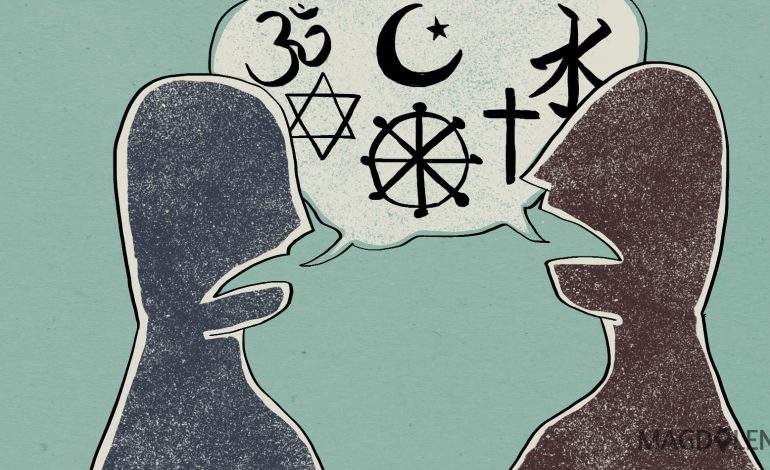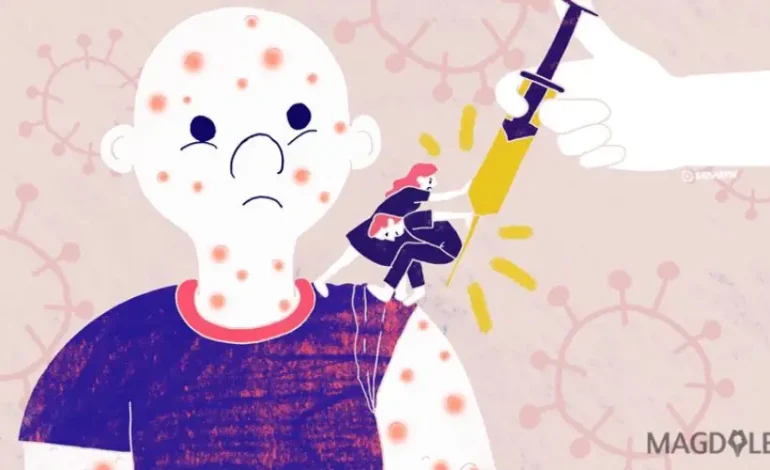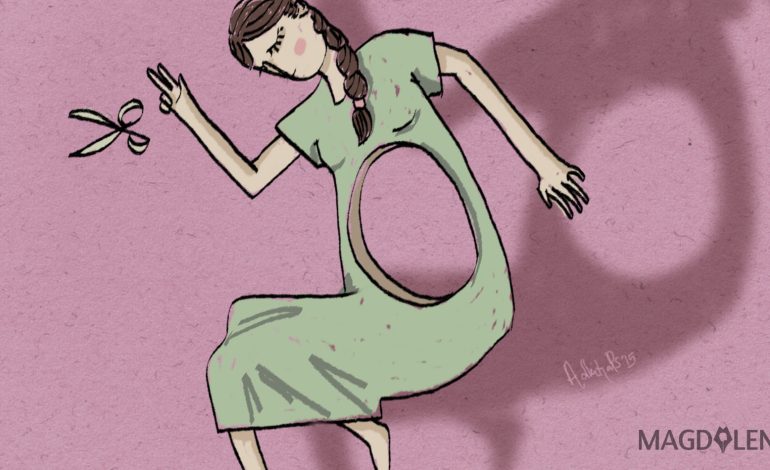When Your Friends Become Religious Fanatics

A friend of mine told her WhatsApp group that she would be late for a meetup because she had to join a choir practice first. A man proceeded to praise her for “Keeping the church central to her life.” When she said that it wasn’t a big deal, he went on with a sermon on the virtues of a Christian, complete with Bible verses.
The man wasn’t a prude hermit, but an outgoing bro. One week later, he advertised a seminar on becoming a successful Catholic. I found it curious, since “success” is a keyword of Evangelical Christians, but is hardly used by Catholics. When I logged into Facebook, the smart social network helpfully suggested the page I had in mind.
I browsed the page and laughed. Facebook recommended it because several of my friends joined the two-days seminar, and there were tons of pictures. The seminar was legitimate, the bishop of Bandung was even there.
Eventually my laughs turned into silence and then into frown. Many of my friends who were there were hardworking women, in a city that only pays half of what people are paid in Jakarta. Why would they pay more than a million for something like this? Was the price of networking and book signing that high? Were they there just to support they organizer? And if they did, again, was the entry fee worth it?
Meanwhile, my brother-in-law often shares stories about his old friends and former co-workers who have gone “hijrah” – turning to conservative Islam. They always complain about Jokowi ruining Indonesia, say gays and communists are everywhere, and believe that the Earth is flat and vaccine is an anti-Islam plot. My brother-in-law remembered them as recreational drug users and as people who enjoyed casual sex. In fact, they would say that their past experiences taught them how the world works, and how evil forces conspire against the Muslims.
I never heard my friends making strong opinions on morals and politics. But after knowing them for ten years, it’s been quite a jump from hanging out for friendship and dating, to join boot camps for “True Catholic Man and Wise Catholic Woman,” to this overpriced wealth seminar.
My father has it worse. Now his friends watch Fox News, since “it’s the only news channel that speaks for Christians.” They believe that Europe is burning because it accepts too many Muslim refugees and tolerates gay people, but God saves America through Trump. They are also hardline supporters of Jokowi, despite his running mate for next year’s election, and believe that anyone criticizing Jokowi is a Prabowo’s shill.
Twenty years ago, the Western world believed that God was an outdated concept, and religion was no longer important. Eventually, the global south would also sideline religions, and would become more rational and humanist. Japan is often cited as an example where secularism isn’t an exclusively Western concept.
But religions have made a big comeback in the 21st century, even in the West. Australia’s Liberal Party won the 2004 federal election by attracting Evangelical Christian votes, when most Australians never heard of them. Fourteen years later, Christian voters are a minor but powerful voting bloc in Australia, Singapore, and South Korea.
In United States, Catholics ally with Evangelical Christians against liberal Protestant churches and non-Christians. Judge Brett Kavanaugh, who many Americans believe should not join the Supreme Court, is a devout Catholic and is supported by American Catholics, despite allegations of sexual assault history.
People need religion and spirituality, but why is the bad kind of religion more popular? And why does religious fanaticism become a trend among the middle class? I am worried that more people feel uneasy with diversity, equal opportunity, and the growing sense of justice in this world. Religions offer an ancient look, a millennia-long perspective when the world was still a violent, superstitious, and disconnected place. It was a world where patriarchy thrived.
This outlook is constantly updated with modern justification – nuclear, heterosexual family is essential for the religion to thrive. Tolerance for other faiths and for non-religious people is a sin. Sexism and greed are justified for the benefit of the religion.
Educated and cosmopolitan people turn to religious conservatism for three reasons. Some do not know better. They need the social and career networks offered by the religious group, and believe that religion will keep them strong in times of trouble, and maybe also offering some blessings.
The two other groups are more sinister. Religious fanaticism gives sense of superiority, including racial superiority. In theory, most religious institutions don’t see race, but as religion is strongly tied to culture, and is often tied to nationalism, devotion to religion is understood as devotion to ethnicity too.
Many American commentators believe that Evangelical Christians support Trump despite having led a life that their religion would deem sinful because he upholds white supremacy. In 2016, analysts predicted that American Catholics wouldn’t vote Trump because they could sympathize with Spanish-speaking Catholics. Turned out they voted for Trump, saying that Clinton is a champion of abortion, and don’t protest Trump’s immigration policy. Sadly, their views reach Indonesian Catholics.
Finally, people become religious fanatics because they believe that is what redemption about, like in the hijrah trend in Indonesia. This redemption promises better afterlife and better social standing, while does not address their bigotry, sexism, and selfishness that were present in their old life.
It’s up to you how to relate to your religious fanatic friends. The best outcome is that they will read Magdalene and listen to you and then think about their life. For those who follow religious conservatism because they don’t know better, hopefully they’d realize that there’s a better way to survive life without submitting to their toxic church.
For the others, it’s going to be harder for them to change, especially if they think fanaticism keeps them alive. If you choose to retain friendship with them, then make sure to take care of yourself. Your humanity has to shine brighter than their faith.
Find out Mario’s take on Facebook’s role in shaping our reality today and follow @MarioRustan on Twitter.






















